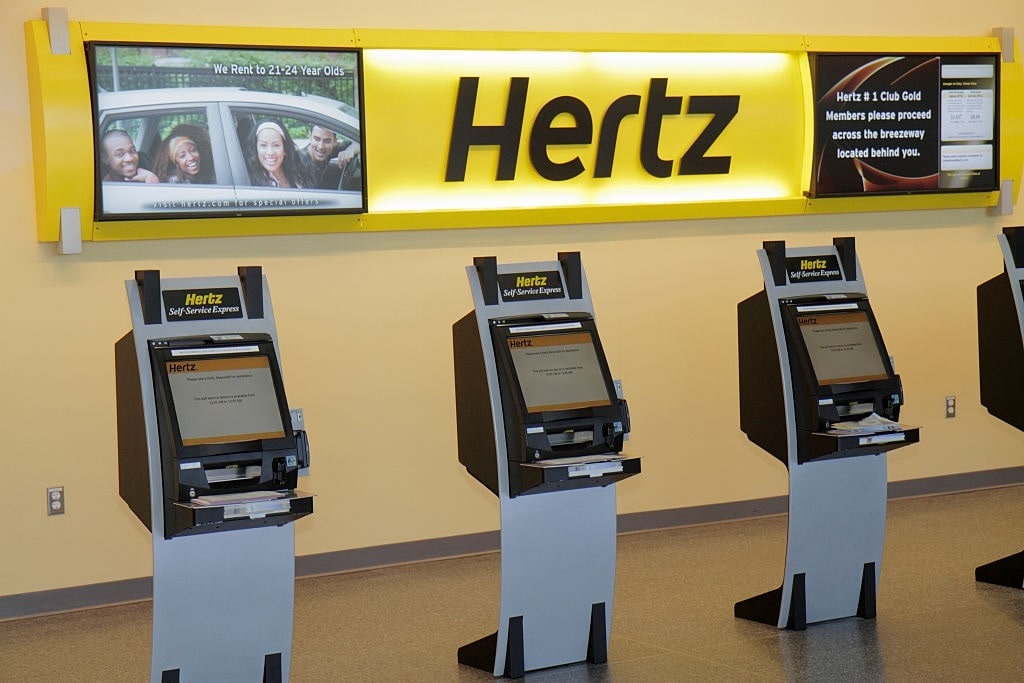Not a great time for green energy.
It has not been a great start to 2024 for the global renewable energy industry. In fact, one could say that it Hertz to reside in the world of electric cars and solar panels. No wonder all levels of government are subsidizing the sector because, without a taxpayer-funded crutch, perhaps the welfare-dependent renewables would collapse like a wind turbine in the middle of a polar vortex. Even as the green lobby stumbles from crisis to crisis, the government will continue to shower borrowed money on any eco-friendly cause.
A World of Hertz
Hertz, one of the world’s four largest car rental companies, announced in Securities and Exchange Commission (SEC) financial filings last week that it would sell about 20,000 electric vehicles (EV) from its US inventories, representing approximately one-third of the firm’s international EV fleet. This is part of a broader “strategic decision” in the face of slowing demand and high costs of managing electric cars, Hertz said in the documents.
“This will position the Company to eliminate a disproportionate number of lower margin rentals and reduce damage expense associated with EVs. The Company will continue to execute its strategy around EV mobility and offer customers a wide selection of vehicles,” the SEC filings stated. “Going forward, the Company will continue to actively manage the total size of its EV fleet, as well as the allocation of EVs among customer segments, including leisure, corporate, government and rideshare.”

(Photo by: Jeffrey Greenberg/Universal Images Group via Getty Images)
While this might be mundane business news confined to CNBC screens and the pages of the Financial Times, what makes it political popcorn entertainment is that the White House had publicly celebrated Hertz.
In March 2023, the current administration championed Hertz’ campaign in “accelerating the EV transition” and helping achieve President Joe Biden’s 2030 objective of having 50% of total vehicle sales be electric. In December, the White House noted that Hertz would assist in guaranteeing federal employees could rent EVs when traveling and “substantially increase its EV rentals” to North American business travelers this year.
Hertz blushed, taking to X to inform the world that it had been “recognized by The White House for our efforts to expand access to electric vehicles across the country.” The company added on social media: “Demand for EV rentals is growing and we’re here to help our customers electrify their travels.”
Indeed, EV demand has slowed considerably, even with generous corporate welfare, government tax credits for car buyers, automakers slashing prices, and dealers increasing their discounts. Overall, manufacturers are selling EVs at a loss, forcing various automobile titans, such as Ford, to announce a reduction in production targets in the year ahead.
But while politicians are trying to force-feed motorists with subsidized EVs, studies have found that owners of electric cars are experiencing 79% more problems with these vehicles compared to gas-powered automobiles. This was recently observed in Chicago after local media outlets reported that charging stations metastasized into graveyards for EVs as drivers could not charge their cars amid frigid temperatures.
Put simply, the market is sending the message that it does not share the same affinity for EVs as Washington progressives do.
Now a Word from Wind Turbines
Over the years, there have been video footage and reports of clean energy equipment getting destroyed by the forces of nature, be it the freezing cold or heavy winds. Shortly after Christmas, strong winds ironically devastated a $3.8 million energy generator in Scotland as the blades became loose and flew across an empty field in all directions. A similar event occurred this past summer in Germany, and the same thing happened in eastern Canada during late December. Six months after going up in flames, a wind turbine in Ontario was finally torn down.
‘Renewables Are a Joke’
For years, the public has been told that solar and wind are cheaper than fossil fuels, be it natural gas or coal. However, new research from the Bank of America found that conventional energy sources are far more economical than renewable options once they are integrated into the power grid. Peter St Onge, a Heritage Foundation economist and Mises Institute fellow, was succinct in his description of the financial institution’s findings on X: “Renewables are a joke.”
Despite everything that has been promised, it turns out that EVs are unreliable, wind turbines are vulnerable to Mother Nature, renewables are expensive, and the only benefactors of the trillions of taxpayer dollars being poured into these projects are green energy companies and politicians.

